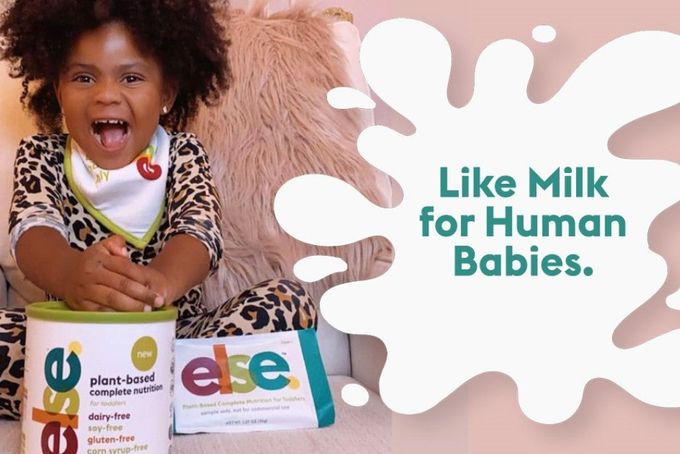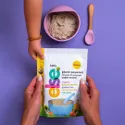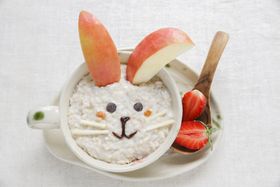Cow’s Milk Protein Alternatives FAQ's
Updated October 3, 2024

Do Children Over 1 Need Cow’s Milk?
Every child is different, and it is challenging to make statements that apply to all children. Full fat dairy and cow’s milk are an obvious source of calcium and vitamin D- both needed for growing bones, carbohydrates for fuel, and fat for brain development as well as protein and calories for overall growth. But, as long as children are getting the calcium, vitamin D, protein, fat and calories that milk would provide elsewhere in their diets, cow’s milk is not an absolute necessity. In fact, studies have shown that children in certain Asian cultures where cow’s milk is not commonly consumed, have appropriate bone development in the absence of cow’s milk. For children who are underweight, or have selective eating, the goal is to avoid any unnecessary restrictions added to their diets. So for those, children cow’s milk or a nutritionally dense alternative, like a dairy-free toddler formula may be more appropriate choices.
Why Would You Opt to Avoid Dairy and Cow’s Milk?
If your child has a documented cow’s milk protein allergy, or an observed intolerance whether that be gastrointestinal (constipation or lactose intolerance for example), behavioral (casein-free diets have been reported in observational studies to improve behavior in autism), or skin related (like eczema). Other children need to be dairy-free for specific medical conditions, specifically ones that are immune-mediated such as inflammatory bowel disease. And, finally some children adapt vegan or plant-based lifestyles for ethical, environmental or other presumed health benefits reasons.
What Are the Options?
There are so many dairy-free milks available. What used to only be available in health food stores are becoming more mainstream, and can now be found in many grocery stores. The most common alternatives available are soy, pea, nut (almond, cashew, coconut), seed (hemp, flax, sesame) and grain (oat, rice) based.
How Do The Dairy-Free Milks Compare Nutritionally?
Unfortunately, most grain, seed, soy, pea, nut-based milks are not as nutritious as full fat, whole cow’s milk. Grain-based milks (oat, rice) are high in starch, ie carbs, but lower in total calories, protein and fat compared to cow’s milk. Soy and pea-based milks have similar high protein contents to whole milk, but less fat, carbohydrates and total calories. Unsweetened, filtered nut milks are much lower in fat, calories, protein and carbohydrates, and the sweetened versions are higher in added sugar. Coconut and most seed milks are high in fat, but fall short in carbohydrates, protein and calories. Many cow’s milk alternatives are diluted products, with added preservatives and stabilizers, and without much of the key ingredients actually left in the final products. And, the sweetened versions have more added sugar than you will find in cow’s milk, which has no added sugar, just that found naturally from the lactose. Some, but not all commercially available cow’s milk alternatives add in the needed minerals like calcium and vitamin D to match or even exceed the amount found in cow’s milk. Homemade versions of dairy-free milks do not have adequate amounts of calcium or vitamin D unless it is added in with a supplement.
What About Toddler Formulas?
Because the dairy-free milk currently available are not as nutritionally dense as whole cow’s milk, many children who are not drinking cow’s milk can benefit from a toddler formula added to their diet. Toddler formulas offer added calories, protein, fat, calcium, vitamin D as well as a complete list of other nutrients like iron, B vitamins which are not found in cow’s milk. While there are many dairy-free milks available, there are not many dairy-free toddler formulas around. For many years, before Else was developed, the only readily available options for dairy-free toddler formulas were soy-based and or very specialized, highly processed hypo-allergenic formulas, which are expensive, not the most palatable, and not always accessible. Where Else is different than most cow’s milk alternatives is that it uses the 3 main ingredients, without any preservatives or stabilizers – almonds, buckwheat, and tapioca are ground into a paste, which allows the inclusion of the whole food, rather than having the nutrients chemically or mechanically extracted. With Else, there is now a readily available, tasty, dairy-free, soy-free, non-GMO, nutritionally dense, low-in-sugar alternative to cow’s milk.
The content and advice provided in this article are for informational purposes only and are not a substitute for medical diagnosis, treatment, or advice for specific medical conditions. Always consult a pediatrician to understand the individual needs of your child.









